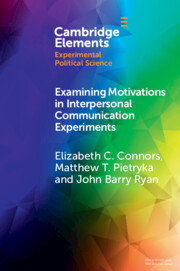Refine search
Actions for selected content:
1 results

Examining Motivations in Interpersonal Communication Experiments
-
- Published online:
- 04 October 2022
- Print publication:
- 03 November 2022
-
- Element
- Export citation
